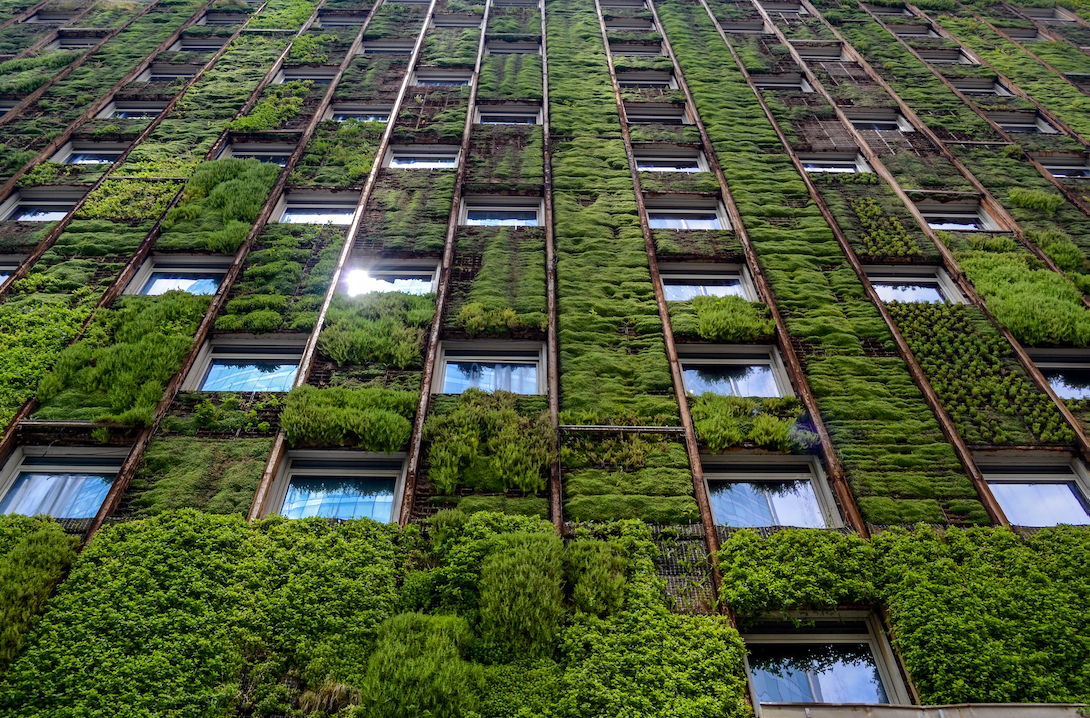Time to read : 4 Minutes
The green revolution is in full swing, and both government and consumers are looking for ways to be more eco-friendly.
Australia has reduced emissions faster than any other major commodity-exporting nation, according to a federal report. Almost nine in ten (87%) Aussies want to shop ethically and sustainably. And just under two-thirds (61%) of consumers say a company’s sustainability practices influence their purchasing decisions.
🪴 On a smaller scale, individuals are also looking for ways to be greener and even live off-the-grid. From building energy-efficient homes to growing their own veggies on their balcony, these ideas are helping people save money and the environment. But how hard is it to actually go off-the-grid in the city – and is it even possible?
The good news is – yes – it is, and it's not as hard as you might think...
💡 A simple switch to LED bulbs can save your household up to 80% on your annual lighting costs.
🌞 When switching to solar, do your research and choose a provider who offers quality maintenance services in addition to installation.
🥕 Growing a veggie garden at home is an easy way to start your transition to living off-the-grid in the city – and the cost savings might surprise you!
🌈 People who have upped sticks and moved off-the-grid report high levels of happiness and overall better mental wellbeing.
Going green? It pays to start small
While choosing to be more sustainable in your everyday life is something most of us want to do, people often falter at the first hurdle because of the price.
And fair enough, a recent study found that sustainable products are, on average, 75–85% more expensive than their conventional versions.
🔌 So while it may not be possible to do a complete green switch overnight, you can make meaningful changes when you start small. Here are some eco-friendly ideas to get started:
Upgrade to LED lighting throughout your house. It could save you up to 80% on your annual lighting costs.
For the holiday season, invest in solar Christmas lights that won’t put a strain on your energy bill.
While it’s a larger upfront investment, switching to eco-friendly insulation like sheep’s wool, cotton or icynene can save you big on your energy bills while also saving the planet.
Take the leap by selling your car and investing in a bike to get around the city. Savings and fitness combined!
Get a rainwater tank on your property for cleaner, fresher and cheaper water on-tap.
Go hybrid with solar panels and sell the excess power you generate back to the grid.
Be careful: In any industry where the government offers heavy incentives and subsidies, there are bound to be rogue operators – and the same is true for solar.
🔍 Do your research before choosing a provider, and make sure they offer quality maintenance services to protect your solar investment for years to come.
Investing in sustainable alternatives can be expensive (but it’s worth it!)
Yes, going green can cost money upfront but the savings will keep rolling in for years to come.
🔋Plus, going off-the-grid is much cheaper compared to the full economic costs to Australia from climate change – the estimated costs of the 2019-20 bushfires alone soared to over $100 billion, according to some experts.
💰Here are some financial considerations that could influence whether or not to embrace a more off-the-grid lifestyle:
40% of the average energy bill in Australia is down to heating and cooling costs. Imagine how much you could save with a more energy-efficient home design?
You don’t need a fancy – or expensive – set-up to grow a veggie patch in your backyard or on your balcony in the city. Experts say buying a packet of cherry tomato seeds will cost around $4–5 and yield anywhere between 8–10 kilos.
If the world came together and simultaneously shifted to sustainable alternatives, we’d actually end up saving $26 trillion.
Top 5 benefits of going green
The environmental benefits of living off-the-grid are obvious, but making such a drastic shift to your lifestyle begs the question of personal benefits. What do you get out of it?
Cheaper utilities: From water (rain tanks) to heating (energy-efficient building design) and lighting (LED lightbulbs), making changes to how your house runs can result in cheaper bills.
Self-sufficiency: Over the long term and with the right amount of solar panels, you could end up generating far more energy than you need to run your house – and even make money selling what you generate back to the grid!
Simpler living: An off-the-grid lifestyle gets you closer to nature (even in the city!) which can bring with it a Zen-like mentality to how you live your life.
Overall wellbeing: While everyone is different, many people who’ve embraced an eco-friendly lifestyle and have moved off-the-grid report higher levels of happiness and more balanced mental health.
Doing your bit for a better society: We can all make changes – big or small – to help bring us closer to the Towards Net Zero Mission.
The bottom line
As a collective, going green and living off-the-grid is a fantastic way to fight the effects of climate change – with the added benefit of saving you money. So what are you waiting for?
📱As technology evolves, so do the possibilities of living off-the-grid even if you’re in the city.
📖 Be aware that every council will have different rules around what you can do to your home and any eco-friendly changes you can make. Zoning and housing permits could be your biggest hurdle to shifting off-the-grid.
👐 Living off-the-grid isn’t just for people who want to sell their house and move to the country. If you have the will to do it, you can do it!
Read more:
Is climate change making us uninsurable?
R U OK – actually, no, we aren't, mentally or financially


































